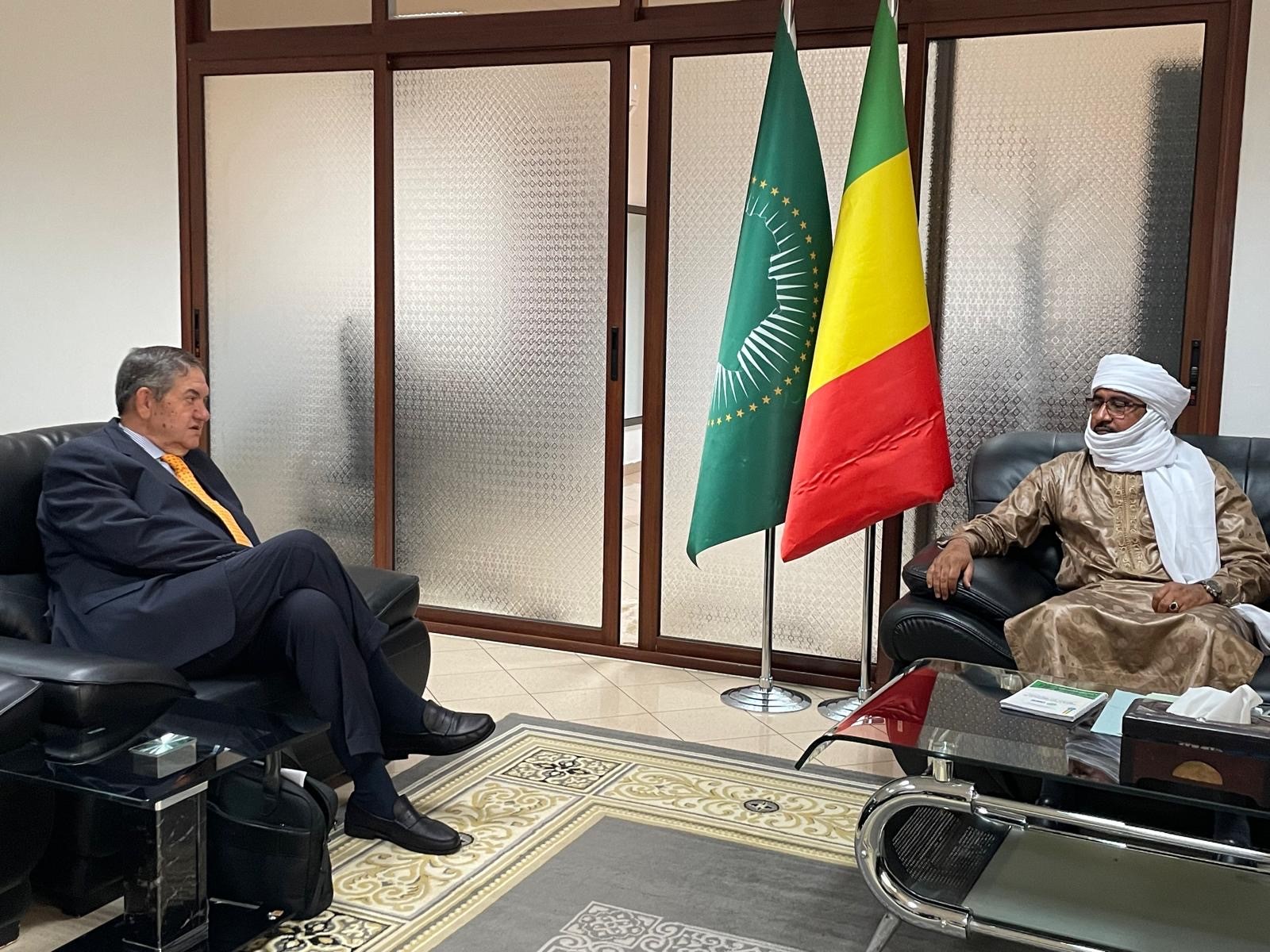The Italian Ambassador to Mali, Stefano A. Dejak, met with the Minister of Malians Abroad, Moussa ag Attaher, to jointly launch the second phase of a project aimed at protecting and assisting migrants, centred around the operationalisation of the Migrant Centre built in Gao, in northern Mali. Building on the one million euros invested by the Italian Ministry of Foreign Affairs and International Cooperation last year to establish the Centre, an additional EUR 500,000 have now been allocated to make it fully operational through the International Organisation for Migration (IOM).
In 2023, data available from the IOM indicates that nearly sixty thousand illegal migrants passed through Gao en route to the Mediterranean coasts near Italy’s shores, marking a 17% increase compared to the same figures for 2022. The Centre, which will soon become operational thanks to the new Italian funding, aims to assist migrants passing through Gao by informing them of the severe risks they face when entering the Sahara desert, which begins just a little further north.
IOM will use the Italian funds to provide migrants with training and opportunities for alternative employment, connecting with other development projects funded by Italy to create jobs in other areas of the country, starting with the Kayes region (southwest of Mali), from which most Malian migrants originate. In this regard, two thousand young people have already been employed through the parallel Italian-funded project SEYDAMA (“Strengthening the Economic Autonomy of Young People in the Two Main Migration Areas of Ségou and Kayes”) and the European Union’s MPRR project (“Migrant Protection, Return and Reintegration”).
Minister ag Attaher welcomed the renewed Italian investment in support of the comprehensive effort he has promoted to combat the criminal phenomenon of illegal migration, to which he has dedicated an “Action Plan to Combat Human Trafficking” (May 2024) and the “National Framework for the Reintegration of Migrants,” launched last 23 August. “Ensuring our citizens are fully informed about a phenomenon in which they are the main victims,” the Minister declared, “is a priority for the Malian government, as is the reintegration of migrants into tangible employment opportunities. We are particularly grateful to Italy, which, since opening its Embassy in Mali in 2021, has become one of our key partners in this endeavor.”
Ambassador Dejak highlighted the importance of Italy’s commitment to this issue: “Italy is engaged on multiple levels to curb a phenomenon that severely impacts the migrants themselves, who are victims of traffickers that do not hesitate to abandon them to certain death in the middle of the Sahara or condemn them to forced paths that will leave them severely traumatised for the rest of their lives, even if they reach their desired destinations.”


